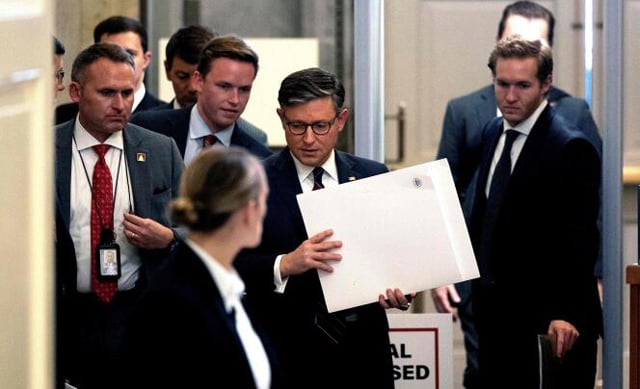
WASHINGTON, Sept 19, 2024 (BSS/AFP) - US lawmakers rejected a Republican government funding plan Wednesday amid divisions within the party, with former president Donald Trump calling for a forced shutdown unless certain demands are met.
With government funding set to expire at the end of September, the bill was voted down in a 220-202 vote, as some House Republicans joined Democrats to oppose it.
Congress needs a stopgap bill known as a "continuing resolution" to keep the government running past November's presidential election, but the parties are nowhere near agreement on a full-year budget.
The six-month extension proposed Wednesday would have punted the shutdown deadline into March 2025, when the next president would already be in the Oval Office.
The draft also included the SAVE Act, a Trump-backed measure that requires proof of citizenship when registering to vote in federal elections.
But President Joe Biden's administration, worried about eligible voters being blocked from voter rolls or otherwise deterred, opposes the act.
It noted that noncitizen voting is already illegal and that there is no evidence it happens.
"If Republicans don't get the SAVE Act, and every ounce of it, they should not agree to a Continuing Resolution in any way, shape, or form," Trump said on Truth Social ahead of the vote.
A government shutdown would see the closure of federal agencies and national parks, limiting public services and furloughing millions of workers without pay just weeks before the election.
Trump, who holds sway over many House Republicans, continues to claim falsely that he was cheated by voter fraud in the 2020 election.
He lobbied Republican House Speaker Mike Johnson to add the election measure to the funding package.
Johnson called off a vote on the funding plan last week as it became increasingly clear how unpopular it was with members of his party.
In a statement on Wednesday, House Appropriations Committee ranking member Rosa DeLauro said: "Once again, the House Republican majority has failed at its most basic tasks."
"We have seven legislative days to keep the government open," DeLauro added.